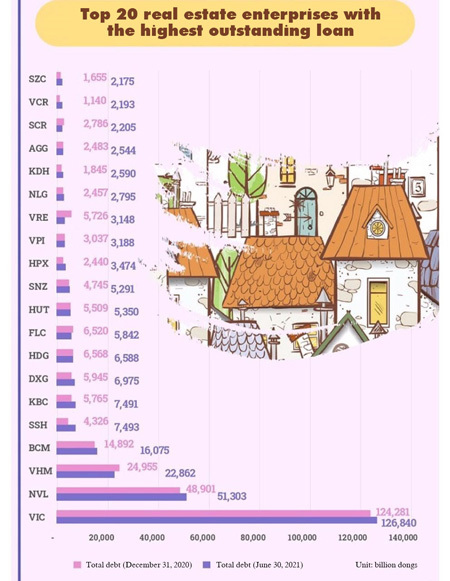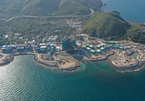The ticking time bomb of Evergrande has been making headlines for many days. The world's most indebted real estate group is saddled with more than $305 billion in debt and has issued repeated warnings that it could default. Currently, Evergrande's stock and bond prices are falling sharply, declining 90 per cent from their peak in 2020. Shareholders and 70,000 investors stand to lose almost everything as the Chinese government signalled intention to let Evergrande handle matters on its own under market mechanisms.
According to CNBC, the Evergrande is threatening to push over real estate companies like a line of dominoes stretching across China while the international press is making a list of other large enterprises whose hefty debts could catch up with them after property sales and debt credit decline. The cooling of the housing market could pose a serious risk to the Chinese economy, as the real estate industry contributes nearly 30 per cent of its GDP and is one of the industries consuming the most materials and using the most labour.
Since the Evergrande fiasco, many people have started to look at the Vietnamese real estate market. Data from the Vietnam Bond Market Association (VBMA) shows that, in the first eight months of the year, real estate companies mobilised the second most bonds with a total issuance value of VND108 trillion ($4.7 billion). Notably, about 21.6 per cent of bonds issued by real estate enterprises are unsecured or secured by shares.
In a document sent to the State Bank at the end of August, the Ho Chi Minh City Real Estate Association (HoREA) acknowledged that cash flow drying up is the greatest direct threat to the industry. Many businesses no longer have the money to keep up with interest and principal payments, or to maintain the apparatus and support and retain employees.
The warning bells of Evergrande and its "mountain of debt" are ringing in the ears of many businesses, leading market observers to believe the Vietnamese real estate industry will likely to be polarized: enterprises with extremely high financial leverage, and capital from China, including Hong Kong, or those having many Chinese customers will find going more difficult. On the contrary, enterprises with better loan balance and strong land banks – or those successfully seizing the opportunity for extensive digital transformation – are looking at solid development opportunities.
 |
| Statistics of Top 20 real estate enterprises with the highest outstanding loan. Source: Vietstock |
In a short time, the market will focus more on companies with less debt and lots of land, such as Khang Dien, Nam Long, and CT Group.
Khang Dien currently has a total debt of VND2.6 trillion ($113 million), only 0.3 times its equity. This enterprise is under virtually no pressure to pay its debts and has 614 hectares of land that is being exploited or will be exploited by 2025.
Meanwhile, Nam Long’s VND2.8 trillion ($121.74 million) of debt, make up only 0.29 times its equity. This developer is planning to spend VND2 trillion ($86.96 million) expanding its land funds in 2021, pursuing a strategy of complex urban area development.
Owning over 1,000ha of urban land area, CT Land (a member of CT Group) projects boast high absorption rates. Recently, this enterprise also announced the results of an inspection by the Credit Information Center (CIC) of the State Bank of Vietnam, which found that it had not had outstanding loans in the past five years and was completing many projects, a rare feet in the industry.
In its market outlook report for the end of this year, Savills Vietnam said that the Ho Chi Minh City market still has advantages in terms of demographics and scarcity of supply. Therefore, demand for residential real estate remains strong. Owners and individual investors are preparing business plans for the market reopening.
When the market gradually gains momentum and internalizes the lessons from Evergrande, products from enterprises with solid finances and strong land funds will show up even stronger.
Source: VIR

Realtors spend trillions of dong to buy land during pandemic
Realtors with strong financial capability are collecting land for large projects in the future.

Real estate market warms up as pandemic controlled
The reopening of the economy has begun with the principle ‘reopening the doors anywhere it’s safe’.